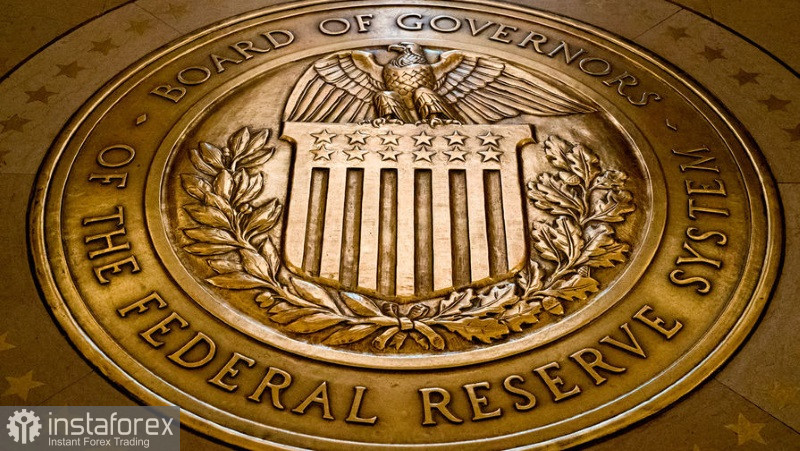The euro and the pound sterling grew after the Federal Reserve made it clear that rising long-term Treasury yields were reducing the incentive for further interest rate hikes this year, even though Chairman Jerome Powell left the door open for a new increase to curb inflation.

Altough Powell noted that policymakers might still raise rates at the meeting next month, he also emphasized the possibility that officials might end their campaign by year-end without resorting to tightening borrowing costs further. However, the Fed's chief also stated that he was not certain whether monetary policy had been restrictive enough to bring inflation back to the Fed's 2% target.
"It's fair to say that the question we're asking is, 'Should we hike more?" Powell said.
During yesterday's meeting, the Federal Open Market Committee, which sets the policy for the US central bank, left interest rates unchanged at a 22-year high for the second consecutive time. The committee's statement following the meeting stated: "Tighter financial and credit conditions for households and businesses are likely to weigh on economic activity, hiring, and inflation. The extent of these effects remains uncertain." The decision was unanimous.
During the press conference, Powell stated that financial conditions had significantly tightened in recent months, driven in part by higher long-term bond yields. In the policymaker's view, previous rate hikes have put downward pressure on economic activity and inflation, and the full impact of the tightening has yet to be felt. "In light of the uncertainties and risks and how far we have come, the committee is proceeding carefully. We will continue to make our decisions meeting by meeting based on the totality of the incoming data and their implications for the outlook and for economic activity and inflation, as well as the balance of risks."
According to the Fed Chair, there is now additional evidence of sustained growth above trend or thereabouts, as labor market tightness is no longer diminishing, which could jeopardize further progress on inflation.
As for forecasts, officials made minimal changes to them. One adjustment was an upgrade to the description of the pace of economic growth from "stable" to "strong," reflecting new economic data released since their September meeting.
Policymakers reiterated that in assessing the appropriate degree of additional tightening that may be needed to bring inflation to 2% over time, they will take into account the cumulative tightening of borrowing conditions and the lagged effects on the economy and inflation.
Regarding the technical picture of EUR/USD, to regain control, buyers should stay above 1.0580. Doing so could pave the way to 1.0610. From that level, there is potential to reach 1.0640, but achieving this without support from major players will be quite challenging. The farthest target is located at 1.0670. If the pair declines, significant actions from major buyers could be seen around 1.0580. If no one steps in at that level, it might be wise to wait for a new low of 1.0550 or to consider going long from 1.0520.
Meanwhile, demand for the pound advanced after the price exceeded the resistance level of 1.2160. A further increase could be expected after gaining control over 1.220. Regaining this range will bring back hope for a recovery towards 1.2230, after which a sharper rise to around 1.2260 can be anticipated. If the pair falls, bears will attempt to take control of 1.2160. If they succeed, a breakout of this range will affect bulls' positions, pushing GBP/USD down towards a low of 1.2130 with the potential to touch 1.2090.





















